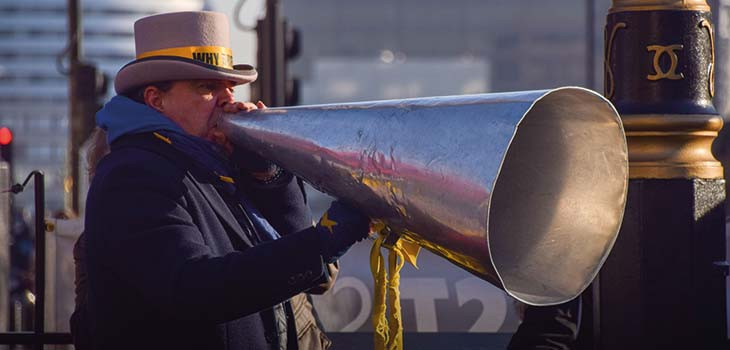
Maybe, as long as we do it quietly and don’t disturb anyone. Writing in this week’s NLJ, Neil Parpworth, of Leicester De Montford Law School, looks at recent curbs and restrictions introduced by the Police, Crime, Sentencing and Courts Act 2022.
He peruses the ins and outs of the Act, including future ‘clarification’ that could yet be introduced. On the offence of breaching a condition placed on a protest, for example, he writes: ‘The law has changed as to the mens rea element of the offence and also as to maximum penalties. Henceforth, the offences will be capable of being committed where a person knows or ought to know that the condition they have breached has been imposed, rather than where they have knowingly failed to comply… This refinement of the knowledge requirement works in favour of the prosecution.’









